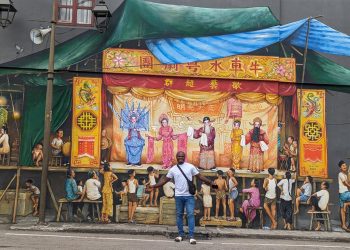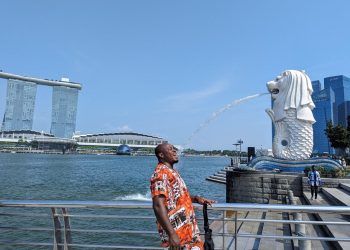Haw Par Villa, the iconic theme park that stands as a cultural treasure in Singapore, possesses a name that resonates with its rich Chinese heritage.
In the Chinese language, Haw Par Villa is referred to as 虎豹別墅 (Hǔ Bào Biéshù).
虎豹別墅 (Hǔ Bào Biéshù): Decoding the Chinese Name
The Chinese name for Haw Par Villa can be broken down into three distinct components:
虎 (Hǔ): This character translates to “tiger,” embodying strength and courage.
豹 (Bào): Signifying “leopard” or “panther,” conveying agility and swiftness.
別墅 (Biéshù): Translating to “villa” or “residence,” suggesting a place of grandeur and significance.
The Essence of Haw Par Villa Captured in Chinese Characters
The inclusion of 虎 (tiger) and 豹 (leopard) in the name pays homage to the iconic Tiger Balm brand, which catapulted the entrepreneurial journey of Aw Boon Haw, the founder of Haw Par Villa.
Bridging Past and Present
As visitors explore Haw Par Villa, 虎豹別墅 (Hǔ Bào Biéshù) serves as a linguistic bridge, connecting the contemporary significance of the park with the historical and cultural narratives embedded in its statues and gardens.
Still have some travel questions? Ask in our Travel WhatsApp Group.








